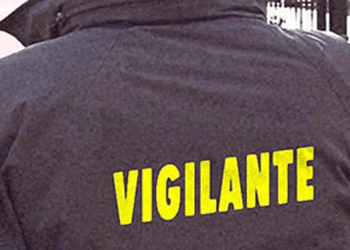Niger’s military rulers have taken control of a French-operated uranium mine, deepening the rift with France since last year’s coup.
French nuclear firm Orano confirmed the takeover, highlighting escalating tensions between the West African nation and its former colonial power.
Orano stated it has faced months of interference with its local subsidiary, Somair, in which Niger holds a 36.6% stake.
The company has also struggled to export uranium due to security-related border closures with neighboring Benin, leaving 1,150 tonnes of uranium concentrate valued at $210 million stranded.
“We intend to defend our rights before the competent bodies,” Orano said while expressing willingness to engage with “all stakeholders to re-establish a stable and sustainable mode of operation.”
Niger is one of the top 10 global producers of uranium, accounting for 5% of global output. Before the coup, it supplied 15–20% of France’s uranium imports, a vital resource for nuclear power generation.
Military leader Abdourahamane Tiani and Niger’s junta have been vocal about dissatisfaction with previous mining agreements, arguing that the nation has not benefited equitably from its mineral wealth. The junta’s actions reflect a broader push to diminish French influence in Niger’s economic and political affairs.
Niger’s Minister of Mines, Colonel Abarchi Ousmane, reinforced this sentiment in a November interview with a Russian news outlet. “The French state, through its head of state, has declared that it does not recognize the current authorities in Niger. Does it seem possible to you that we, the state of Niger, would allow French companies to continue extracting our natural resources?” he said.
The military leadership has signaled interest in inviting Russian and Turkish companies to invest in Niger’s mining sector, a move that could shift the region’s economic alliances.

Colonial Legacy Under Scrutiny
Since gaining independence from France in 1960, Niger has been a key uranium supplier to its former colonial ruler. Longstanding agreements secured exclusive access, allowing French companies significant control over the industry.
The coup in July 2023 marked a turning point. Tiani’s government expelled French troops and revoked Orano’s permit to exploit one of the world’s largest uranium deposits, halting production entirely in June.
This latest move cements the junta’s intent to reshape resource governance, casting it as a stand against neo-colonial control.
The takeover of Orano’s mine underscores Niger’s shifting allegiances. Analysts suggest that diminished French involvement could pave the way for increased Russian and Turkish investment.
The developments also coincide with heightened geopolitical tensions. Russia’s growing presence in Africa, coupled with the junta’s rejection of Western influence, signals potential realignments in global partnerships.
The dispute with Orano adds economic pressure to the strained relationship. While Niger’s military rulers seek to maximize their share of resource revenues, Orano’s inability to export uranium disrupts its operations and global supply chains.
As the situation unfolds, questions remain about the broader impact on Niger’s economy and its relationships with international partners.
The unraveling ties between Niger and France have implications beyond the mining sector. The expulsion of French troops and the shift in control over uranium resources are emblematic of the junta’s broader agenda to reclaim sovereignty and redefine its alliances.
With global attention on Niger’s evolving strategy, the military government appears poised to challenge historical norms and stake its claim as a self-determined economic power.
READ ALSO: Police Assure Public of Tight Security for NPP and NDC Final Rallies



















